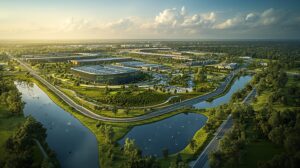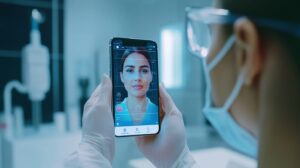
The Essential Skills You Didn’t Learn in School
An interview with Peter Humphreys, CEO at Development Beyond Learning
Q: What does Development Beyond Learning (DBL) do, and whom do you serve?
DBL is a leading Learning & Development partner specializing in early talent development. We design and deliver bespoke, engaging programs rooted in behavioral science to nurture future leaders.
We collaborate with organizations globally that are dedicated to investing in their early career workforce. Our partnerships are designed to create comprehensive learning journeys that instill essential human skills, fostering a confident, effective, and engaged workforce.
Our approach goes beyond traditional talent programs. We focus on creating exceptional talent journeys that not only develop skills but also nurture outstanding individuals who will propel their organizations forward.
Q: The company’s mission statement emphasizes 'human skills,' and the culture statement mentions a 'human approach.' What are human skills? How does a human approach differ from what we see in most organizations?
Human skills, often referred to as soft skills, are the interpersonal attributes that enable individuals to interact effectively with others. These include communication, empathy, emotional intelligence, adaptability, creativity, and critical thinking.
Our human approach stands apart from traditional organizational methods in several key ways:
- Holistic Development: We focus on nurturing the whole person, not just job-specific skills.
- Emphasis on Emotional Intelligence: We prioritize skills like self-awareness and empathy, which are crucial for effective leadership and collaboration.
- Long-term Perspective: Our approach aims for lasting behavioral change, not just short-term skill acquisition.
- Continuous Improvement: We constantly evolve our methodologies based on the latest behavioral science research.
This human-centric approach creates more engaged, resilient, and effective employees who are better equipped to navigate the complexities of the modern workplace.
Q: What are the key gaps between academic education and the needs of the modern workplace? Beyond improving communication and interpersonal skills, is there a fundamental aspect that academic institutions are missing in preparing students for the modern work environment?
While academic institutions excel at imparting technical knowledge, several key gaps exist between traditional education and the needs of the modern workplace:
- Practical Application: Many graduates struggle to apply theoretical knowledge to real-world scenarios.
- Adaptability and Resilience: The rapidly changing work environment requires a level of flexibility and resilience that isn't typically taught in academic settings.
- Collaboration and Teamwork: While group projects exist in academia, they often don't reflect the complex dynamics of workplace collaboration.
- Digital Literacy: Despite being "digital natives," many graduates lack proficiency in professional digital tools and platforms.
- Entrepreneurial Mindset: The ability to innovate, take calculated risks, and drive change is increasingly valuable but often overlooked in traditional curricula.
Many academic institutions miss the fundamental aspect of fostering a growth mindset and learning agility. In today's fast-paced work environment, the ability to continuously learn, unlearn, and relearn is crucial. This includes understanding one's own thought processes and learning patterns.
Moreover, there's often a lack of emphasis on professional identity development. Students need guidance in understanding workplace cultures, professional etiquette, and organizational dynamics. This includes developing self-awareness, understanding one's strengths and areas for growth, and learning how to align personal values with organizational goals.
By addressing these gaps, we can better prepare students for the realities of the modern workplace and set them up for long-term success in their careers.
Q: The professional landscape is evolving rapidly, with frequent discussions about the future of work and AI. This can feel overwhelming for many. What advice would you give to individuals trying to navigate these changes and secure their future in this dynamic environment?
Navigating the rapidly evolving professional landscape can indeed feel overwhelming, but it also presents exciting opportunities. Here's our advice for individuals looking to secure their future in this dynamic environment:
- Embrace Lifelong Learning: Commit to continuous learning and skill development. Stay curious and open to new ideas and technologies.
- Develop Human Skills: While technical skills are important, human skills like creativity, emotional intelligence, and critical thinking will become even more valuable as AI takes over more routine tasks.
- Cultivate Adaptability: Be flexible and ready to pivot. The ability to adapt to new situations and learn quickly will be crucial.
- Understand AI and Technology: Gain a basic understanding of AI and emerging technologies. You don't need to be an expert, but knowing how these tools can enhance your work is valuable.
- Focus on Your Unique Human Qualities: Identify and develop the skills and qualities that make you uniquely human. These are the areas where you'll be able to add value beyond what AI can offer.
- Build a Strong Network: Cultivate professional relationships. Networking can provide opportunities, insights, and support as you navigate changes.
- Develop Digital Literacy: Ensure you're comfortable with digital tools and platforms relevant to your field.
- Practice Resilience: Develop mental toughness and the ability to bounce back from setbacks. Change often brings challenges, and resilience will be key.
- Stay Informed: Keep up with trends in your industry and the broader business world. This knowledge will help you anticipate changes and prepare accordingly.
- Find Your Purpose: Align your career with your values and passions. When you're driven by purpose, you're more likely to stay motivated and adapt to changes.
Remember, change brings both challenges and opportunities. By staying proactive, adaptable, and committed to growth, you can position yourself to thrive in the future of work.
Q: Is it challenging to find talent? Since the pandemic, many people have reevaluated their relationship with work and are now looking for purpose, meaning, and flexibility. Have these shifts introduced new challenges for employers?
Yes, finding and retaining talent has become increasingly challenging in the post-pandemic landscape, but it has also created opportunities for organizations willing to adapt. Key challenges include:
- Increased Competition: As remote work has become more common, geographical barriers have diminished, intensifying competition for talent on a global scale.
- Changing Expectations: Employees now prioritize work-life balance, flexibility, and purpose-driven work more than ever before.
- Skills Gap: The rapid pace of technological change has widened the skills gap, making it harder to find candidates with the right mix of technical and human skills.
- Retention Challenges: With more options available, employees are more likely to change jobs if their needs aren't met, increasing turnover rates.
- Cultural Fit in Remote/Hybrid Settings: Assessing and maintaining cultural fit has become more complex in remote or hybrid work environments.
However, these challenges also present opportunities for employers to reimagine their approach to talent acquisition and retention:
- Emphasize Purpose and Values: Organizations that clearly communicate their purpose and demonstrate strong values are more likely to attract and retain talent seeking meaningful work.
- Offer Flexibility: Embracing flexible work arrangements can significantly expand the talent pool and improve employee satisfaction.
- Focus on Employee Development: Investing in comprehensive learning and development programs can help bridge skills gaps and demonstrate a commitment to employee growth.
- Prioritize Well-being: Implementing robust well-being initiatives can help attract and retain employees who prioritize work-life balance.
- Embrace Diversity and Inclusion: A strong commitment to D&I can attract a wider range of talent and foster innovation.
- Leverage Technology: Using AI and data analytics in recruitment can help identify the right talent more efficiently.
At DBL, we see these shifts as an opportunity to help our clients create more human-centric workplaces that attract and retain top talent. By focusing on developing human skills, fostering a sense of purpose, and creating engaging learning journeys, we help organizations build workplaces that resonate with the evolving needs and expectations of the modern workforce.









